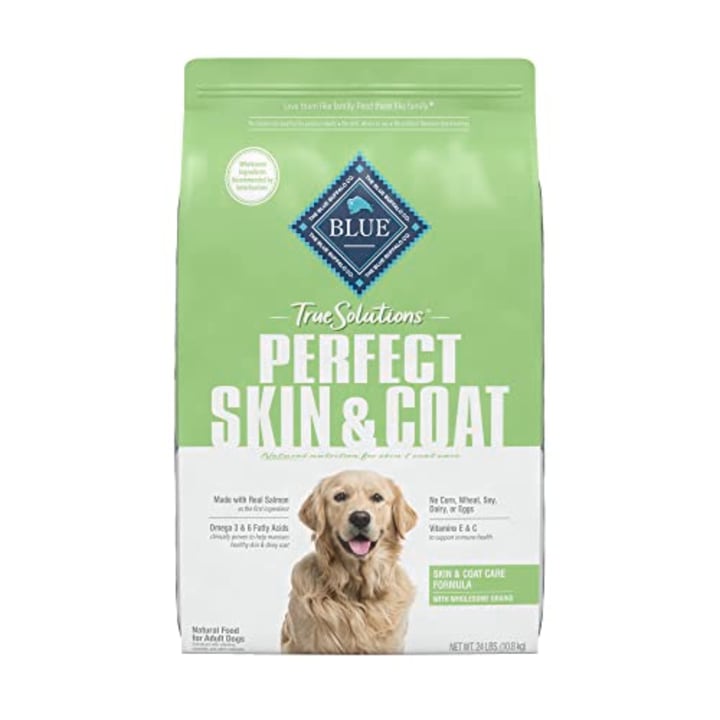Handy Reasons For Selecting Petz Park
Wiki Article
How Can Omega-3 Fatty Acids Aid In Joint Health For Pets And Felines?
Omega-3 fatty acrs, EPA eicosapentaenoic, and DHA docosahexaenoic acids are essential in maintaining and enhancing joint function in dogs as well as cat. This is why they're beneficial:
Anti-Inflammatory Properties
Reduce Inflammation
Function: Omega-3 fatty acids have significant anti-inflammatory properties. They reduce the production of proinflammatory substances such as cytokines or eicosanoids that can cause inflammation.
Omega-3s can decrease inflammation and reduce swelling in joints. This is advantageous for arthritis-related conditions. This makes movement more comfortable for pets and improves their quality of life.
Joint Lubrication and Health
Improved joint Lubrication
Function Omega-3 fat acids ensure the health and lubrication of the synovial fluid. This is the fluid used to lubricate joints.
Benefits of lubrication that is better: Less friction results in less wear and tear for cartilage. It's especially beneficial for pets with joint issues or are at the risk of getting joint problems.
Cartilage Protection and Repair
Cartilage Protection:
Function: Omega-3s lower the activity of the enzymes that break down cartilage.
Benefits: Protecting cartilage from degradation helps maintain joint strength and aids in slowing the progression of joint diseases like osteoarthritis.
Immune System Support
Immune System Regulation:
Function: Omega-3 acids modulate immune responses, encouraging an equilibrium in inflammation.
Benefits: An immune system that's well-regulated can aid in better managing joint pain. This will prevent excessive joint inflammation and damage.
Comfortable Mobility and Improved Comfort
Improved Mobility
Omega-3s have been proven to be beneficial in reducing inflammation and protecting joints, and helping pets move better.
Benefits: Many pets, particularly elderly animals or those suffering from arthritis show less pain and better mobility. This can lead to an active and happier life.
Additional Health Benefits
Overall Health:
Function The Omega-3 fatty acids aid in skin, cardiovascular and coat health, which could contribute to the overall well-being of pets.
Benefits of a healthier pet: A healthy pet will be more active, and will have healthier joints.
Use and Considerations
Dosage and Administration appropriate dosage of Omega-3s depends on the size weight, size, and health conditions. Please follow your veterinarian or the instructions listed on the label for the product.
Sources of Omega-3s High-quality fish oil supplements are a typical source of EPA and DHA. It is crucial to select supplements specially designed for pets in order to guarantee safety and effectiveness.
The side effects of Omega-3 supplements are usually safe, however, some pets might have digestive issues or have fishy breath. Start with a lower dosage and gradually increasing it and gradually, you can reduce any adverse effects.
Conclusion
Omega-3 fat acids are beneficial to the joint health of both cats and dogs. The anti-inflammatory properties of omega-3 fatty acids, their capacity to increase joint lubrication, help protect cartilage and the immune system are all factors that contribute to better joint function and reduced discomfort. Regular supplementation can result in better mobility and a healthy, active lifestyle for pets. See the most popular herbs good for dogs for blog tips including pet anxiety supplements, pet red clover supplements, pet glucosamine-chondroitin supplements, dog supplements, pet supplements for breeding dogs and cats, pet supplements for pets with skin infections, pet supplements for puppies and kittens, pet supplements for pets with fear of death and more.

Quercetin Can Help Skin Allergies In Cats As Well As Can Be Used To Treat Skin Allergies In Dogs As Well As Cats.
Quercetin is a flavonoid, which is found in both vegetables and fruits, has shown to be beneficial in managing allergies to skin in dogs and cats. This is the way quercetin can be used to treat skin allergies.
Anti-inflammatory properties
Reduce inflammation
Effect: Quercetin contains strong anti-inflammatory effects that block the production of and release of pro-inflammatory Cytokines.
Benefits Quercetin is a potent antioxidant that helps reduce inflammation. It also helps reduce swelling, redness as well as pain and discomfort due to skin allergies.
Antihistamine Effects
Natural Antihistamine:
Quercetin functions by inhibiting histamine release in mast cells. Histamines are chemicals that cause itching and other allergic symptoms.
Benefits: Quercetin, an antibacterial that is natural, can help pets who suffer from allergies.
Antioxidant Activity
Oxidative Stress:
Function: Quercetin, a powerful antioxidant, helps to neutralize free radicals. It also helps reduce the stress of oxidative deterioration.
Benefits - Reducing oxidative stress helps protect the skin from damage and promote healing.
Immune System Modulation
Balanced Immune Response
Function: Quercetin modifies the immune system, providing an efficient and balanced response to allergens.
Benefits: A balance immune response can prevent excessive reactions to allergens. This can reduce the severity and frequency of allergic manifestations.
Improvement of the skin barrier function
Strengthening Skin Barrier:
Function: Quercetin is essential in maintaining healthy skin barriers by assisting with the production of ceramides.
Benefits: A thicker skin barrier can protect you from environmental allergens. This will reduce the chances of getting an allergic reaction or infection.
Allergy Symptom Management
Treatment for Symptoms
The function: Quercetin reduces inflammation by blocking the enzymes responsible for it, including Lipoxygenase.
Benefits: This leads to lessening symptoms such as itching swelling and redness, providing comfort and relief for pets.
Usefulness and considerations
Dosage: The dose depends on the weight, size and the health needs of your pet. Always adhere to the directions on the label of the product as well as the recommendations of your veterinarian. Quercetin is typically administered in combination with bromelain to enhance its absorption and efficacy.
Formulations: Quercetin supplements for pets can be found in different forms, including capsules, powders, tablets, and tablets. Selecting the best pet-specific products is vital for security and effectiveness.
Quercetin has a low risk of side effects, but higher doses could cause stomach upset in certain animals. It is best to start at a lower dosage and increase it slowly. This can help to reduce side negative effects. It is important to check for any adverse reactions, such as nausea or diarrhea.
The conclusion of the article is:
Quercetin is a beneficial supplement to treat allergic skin conditions in dogs as well as cats. Its antioxidant properties and antihistamine effects help reduce itching, inflammation and oxidative stresses, while protecting the skin barrier, modulating immune response, and enhancing the quality of life for animals with skin allergies. Regular use of the product can help decrease allergic reactions and improve skin health. This improves the quality of life of pets suffering from skin allergies. Have a look at the top treatment for cushings disease in dogs for blog recommendations including pet oregano supplements, pet supplements for pets with travel anxiety, pet supplements for pets with kidney disease, pet supplements for pets with spinal problems, cushings disease natural treatment, pet casein protein supplements, pet supplements for pets with fear of music, natural remedies for dog and more.

Apple Cider Vinegar Can Be Used To Treat Yeast Infections In Dogs And Cats.
ACV is frequently prescribed to treat yeast infections among dogs and cats. ACV's acidic nature can cause side effects and is not recommended without veterinary supervision. Here's the way ACV is believed to aid with yeast infections:
Antifungal Properties
Acidic Environment
ACV is an acidic product, with the pH ranging between 2.5 and 3. This acidic environment can cause an unhospitable environment yeast growth.
Benefits Applying ACV in its dilute form on your pet's skin or ears, and adding it to bath water will help to reduce yeast.
Skin pH Regulated
Balancing Skin pH:
ACV's function is to balance skin pH. This helps maintain an endocrine-healthy barrier on the skin and impedes the growth of yeast.
Benefits: Maintaining proper pH levels on the skin will help to prevent yeast infections, and enhance overall health of the skin.
Anti-inflammatory Effects
Reduce inflammation:
ACV has mild anti-inflammatory properties.
Benefits - Reducing inflammation helps to alleviate symptoms like irritation, discomfort and redness that are common with yeast infections.
Support for Digestive Health
Internal Use
Function: When ingested (in tiny amounts and with a high level of diluted), ACV is thought to improve digestion and balance gut flora.
Benefits of a healthy gut can reduce the growth of yeast by helping to support the general immune system health and balance of microbial activity.
Use and considerations
Topical Application: Use ACV dilute with water (typically 1 part ACV for 1-2 parts of water) or spray or rinse for the skin or ears. Avoid applying it to damaged skin and open wounds.
Internal Use - If you are considering using ACV for internal use, talk to your veterinarian first. ACV is best given in small quantities and highly diluted (1 1 teaspoon to 1 tablespoon per cup of liquid) to avoid any stomach upset.
Monitoring: Watch for any signs of allergies or irritations while using ACV topically. Stop using ACV if any adverse reactions develop.
A consultation with a veterinarian Before making use of ACV to treat yeast infections, you should consult your veterinarian. They can offer advice on the proper dosages applications, methods of application and potential risks, based on the individual health requirements of your pet.
End of Service
Apple cider can be useful in treating yeast infections among dogs and cats it should still be administered with caution and under the supervision of a veterinarian. ACV's acidic properties can inhibit yeast growth in the ears as well as on the skin. They may also offer some mild anti-inflammatory benefits. It is vital to dilute ACV properly and apply it carefully so as to avoid irritations and other adverse reactions. Veterinary guidance ensures that ACV is used safely and effectively as part of a holistic treatment plan to treat yeast-related infections in pets. Check out the recommended herbs good for dogs tips for site info including pet calming supplements, pet lactation supplements, pet wellbeing australia, pet supplements for pets with storm anxiety, pet supplements for pets with fear of confinement, pet supplements for pets with skin rashes, pet energy supplements, pet supplements for breeding dogs and cats and more.
